Do we want a bud shop in our town? Part II
Legal weed. Local views collide over recreational marijuana – or “state-sponsored drug pushing.” This is the second of a two-part series, focusing on New York communities.
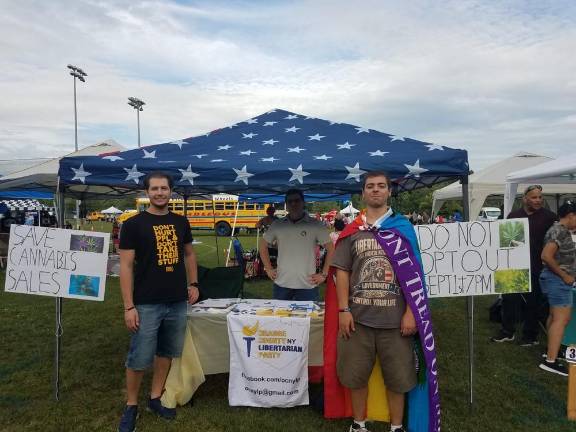
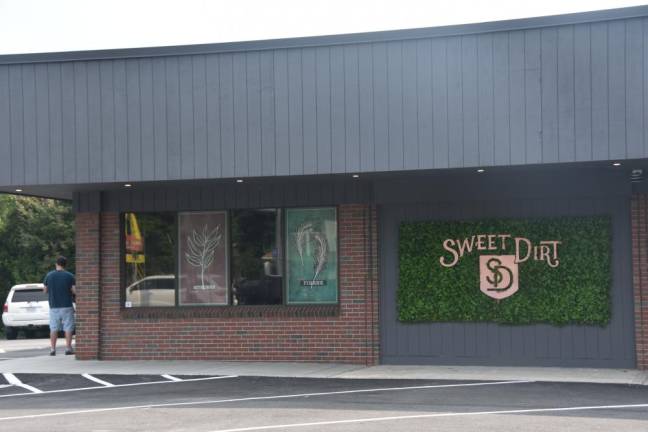
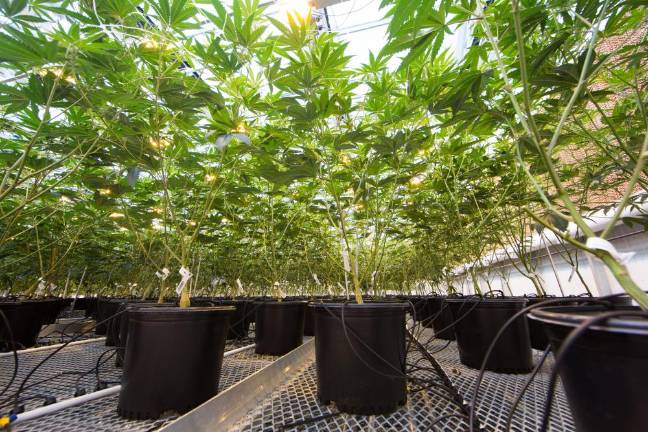
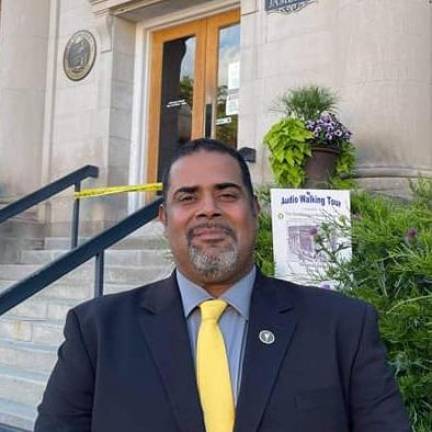
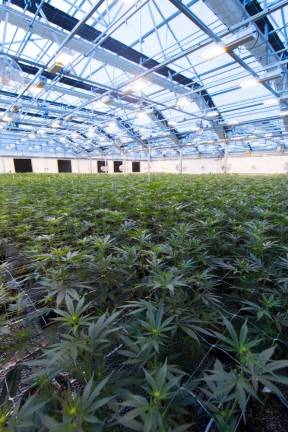
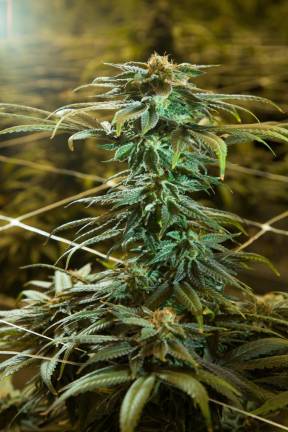
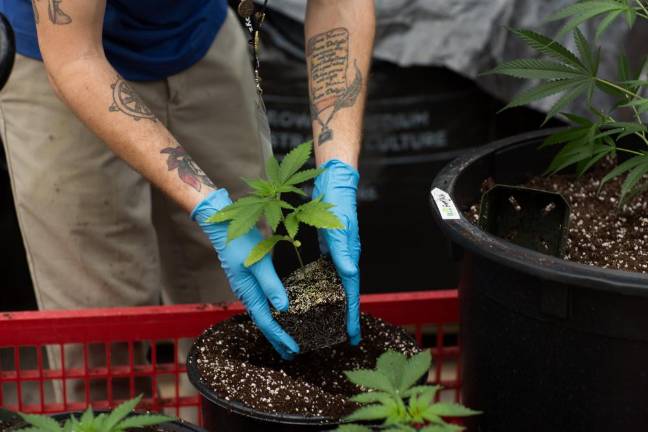
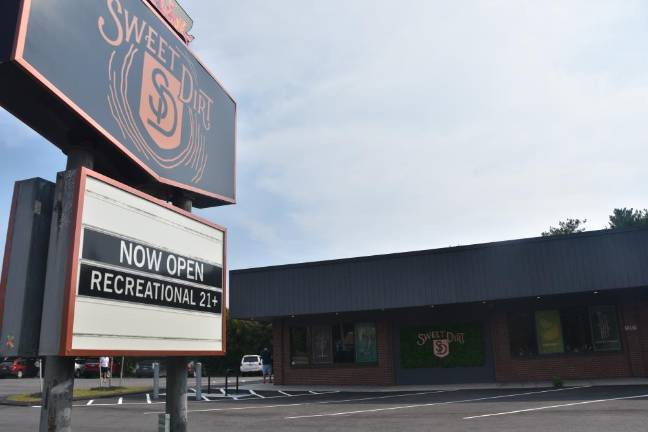
Now that recreational marijuana is the law of the land in five states from New Jersey to Maine, towns and villages across the region find themselves at a fork in the road. Should they cash in on the tidal wave of demand; run the other direction; or tap the brakes, wait and see how it goes in other towns?
New York towns have until New Year’s Eve to opt out of hosting retail dispensaries and public consumption facilities. Municipalities that don’t take action by the deadline will, by default, allow legal weed enterprise within their borders, though whether a community could be forced to accept a dispensary remains unclear.
From Long Island to the Adirondacks, communities have been doing their own homework and their own soul searching, weighing on the one hand the allure of tax revenue, job creation, and tourism that “cannabusiness” would bring; and on the other, concerns over image, security, traffic, health, and for some, morality.
Whatever they decide, communities can’t override state laws: they can’t stop adults from smoking pot in public, or prevent licensed cannabis delivery companies from servicing their area. People will be toking up, that’s a given. The question is where they will get their weed, and hence, who will profit.
Big Weed comes to town
“We have become a center, there’s no question,” said Warwick, N.Y., Supervisor Michael Sweeton. With the arrival of the Chicago-based Green Thumb Industries, one of the three biggest players in the country, the 730-acre “cannabis cluster” at the town’s defunct prison site is officially at full occupancy.
Orange County is also home to one of the state’s first licensed growers: Pharmacannis, a medical marijuana colossus in Montgomery, N.Y., that’s making headlines right now as it thinks about going public, according to Reuters.
Long famous as the region’s breadbasket, Orange County is fast becoming its weedbasket, too, supplying a market expected to generate $8.7 billion in sales by 2027, according to the nonprofit Marijuana Policy Project.
The cannabis cluster – along with other business at the site including a brewery and sports complex – will more than replace the 400-plus jobs that went away when the medium-security prison closed, said Sweeton. “We’ll gain all of that back plus the tax revenues,” he said. The tax revenue will help maintain a stable tax rate for Warwickians, he said. “We’ve never had the counterbalance, commercially, the way some other communities have had, because we didn’t really have the infrastructure to do it,” he said. “That’s why this site was so important to us.”
Enticed by generous tax incentives, Green Thumb Industries bought up the last eight parcels of the former prison site and is turning them into a 40-acre, $50 million cannabis growing and processing facility that will employ 125 people. The media is loving the ironic twist: a prison where drug war targets were once locked up for possession is now home to a mega-weed farm. The grow is slated to be up and running by next June, when licenses are expected to be awarded to sell recreational weed in New York.
Sweeton once hoped local farmers would benefit from the cannabis infrastructure. But most have given up growing hemp, and “I don’t know that too many of them are going to be growing recreational marijuana,” said Sweeton. Hemp seemed to hold so much promise as a cash crop just a couple years ago – until everyone started growing it, the market got saturated and the bottom fell out. And now that hemp’s sexier, more potent cousin just sauntered into town, all eyes are on recreational marijuana.
There may be a future in hemp yet – for “insulation, strengthening plastics, a replacement for plastics,” said Sweeton. “We will have the infrastructure in place to process any inputs we do get out of the farming community, so in a way I guess we’ve sort of achieved that, but it’s gone to a different level with New York’s move into recreational.”
There is some cross-pollination occurring, not with local farmers but inside the cannabis cluster itself. Green Thumb Industries, which makes most of its money selling profitable “derivatives” like edibles and vapes, is talking to its next-door neighbor UrbanXtracts, which grows and processes hemp, about using their CBD oil in its own products.
As for pot shops, Sweeton is recommending that Warwick allow dispensaries in a subsection of commercial zones, but not on-site consumption sites. The latter is a class of license available in New York but not New Jersey, that’s been compared to Amsterdam’s coffee shops: cannabis lounges where customers can buy and use marijuana on site. Sweeton compares dispensaries to pharmacies, while on-site consumption sites are akin to bars, bringing with them increased concerns like people driving under the influence. Warwick will vote on the question on Sept. 9.
The Town of Tuxedo likewise voted to ban on-site consumption, but will take no stance on marijuana commerce, thereby allowing dispensaries, said Town Clerk Maris Dollbaum. The Village of Greenwood Lake also said no to cannabis lounges, and is holding public hearings on the question of dispensaries, said Mayor Jesse Dwyer.
With four months until the deadline, many towns are still on the fence. The towns of Woodbury and Chester are undecided, as is the Village of Warwick, although they are leaning toward opting out, according to Mayor Michael Newhard.
Though it’s too early to tell, watchdogs expect that most New York municipalities will play it safe by opting out initially. Middletown and the villages of Chester and Goshen have already done so. That’s what happened in New Jersey, where more than 70% of municipalities opted out by the Aug. 21 deadline.
“It’s highly likely the towns banning it now will end up opting in over the next couple of years,” said Evan Nison, 31, the youngest member of the board of directors of NORML, a pro-legalization advocacy nonprofit. Colorado, California and Massachusetts came out of the gate hesitantly too, he said. “Not surprisingly, when this issue is introduced, a lot of people will ban it to quote unquote ‘be safe’ in the local government, then they quickly realize they’re not stopping cannabis flow, and they’re not getting any benefits,” said Nison.
“That’s the cautious approach,” said Sweeton – but he doesn’t think it makes much sense.
“Isn’t it better to know what the product is, since it’s legal now, as opposed to having people go around and find it from Joe Blow on the side of the street, where you don’t know what the product is, don’t know how it’s been grown, tested, what’s been applied to it?” said Sweeton. “You don’t even know at that point what the THC level is. But in a dispensary you would know all of that.”
The DUI problem
The biggest question mark for Sweeton is a universal concern among local leaders: how to detect people who are driving stoned.
“I think you’re already seeing technology in the law enforcement realm for detecting operating under the influence,” he said. As of now, he said, “We still have those concerns.” Sweeton expects to see products containing THC – the psychoactive component of marijuana – for sale at gas stations and convenience stores, like a six-pack of beer or CBD gummies are now.
“On the one hand, cannabis doesn’t impair driving nearly as much as alcohol,” said Dr. David Nathan, a psychiatrist and leading voice in the medical community on marijuana reform. “That’s a good thing, and if people drink less and are using more cannabis you might actually see fatal accidents and DUI incidents go down.
“But if people are drinking and using cannabis at the same time, that makes the risk go up to be higher than alcohol alone,” Nathan added. “So we want to get the word out that you should never drive impaired. You certainly should never drive after drinking and smoking. It’s worse than just drinking. That to me is the biggest risk. I think everything else is manageable.”
Fighting the good ol’ boys club
When Middletown aldermen voted unanimously to ban pot shops, Juan Ayala, stepped into his first political fray. Ayala, an IT director, had just entered the race for alderman himself. He thought the town he’d lived in since age 4, where incumbents tend to run unopposed, could use some fresh perspectives. “It’s a little bit of a good old boys’ club,” said Ayala, 51, who describes his views as libertarian. “There’s no dissent, no difference of opinion.”
“Maybe there are rural communities it doesn’t impact as much, but I believe for Middletown the best option is not to have the public consumption of marijuana on our public streets,” said Middletown Mayor Joseph DeStefano at a July Common Council meeting.
“We’re going to get people who are going to act stupid, especially at the beginning,” said DeStefano. He has said he plans to lobby state lawmakers to restrict public consumption of marijuana – which the new law allows anywhere tobacco can be smoked – to keep it away from kids. “They’re going to flaunt it. We already had one person stand in front of the police station smoking pot, saying, you know, hooray for me.”
“Not everyone likes the smell of marijuana – I get it,” said Ayala. “But, you know, opting out doesn’t solve that issue. It’s still legal.”
A ban, he became convinced, would only serve to keep the black market thriving, prevent access to safe marijuana use, deny the city much-needed revenue and deprive residents of their liberty.
“I feel like we’re in the 21st century and we need to get moving on past what people’s preference is, to smoke or drink,” he said.
He started writing letters to the editor and speaking at pubic meetings. When he managed to convince his conservative wife that the financial upside trumped the other stuff, he thought, “Good, I’m getting better at this.”
He might have had a kneejerk reaction against recreational marijuana himself if not for a visit to Colorado a few years earlier. “It’s done very nicely,” he said. “I even went to one of the dispensaries. It actually looks nicer than the Verizon store here,” he added with a laugh. “You have this stigma about marijuana because it’s been so underground for so many years, and I wish they saw. That’s how it should be.”
Residents have the right to petition the outcome of a local law, moving the matter to the ballot at the next general election. The timing is too tight for this year, but Ayala is thinking of getting some friends together to collect the 1,000 signatures needed to force the issue next year.
“It wasn’t on my radar when I first started this campaign,” said Ayala. “But I’m going to keep fighting for this now. I’m a sore loser.”
Public opinion? Radio silence.
The Town of Chester decided to put the question to the people. It would convene a citizens panel of at least a dozen residents to consider the many issues at play. After a month and a half of recruiting, they got two volunteers, plus Chester Town Councilman Dr. Tony Ardisana.
“It’s a little crazy,” said Ardisana. “We tried to get some kind of a quorum going. Nobody really wanted to participate.” The two committee members are evenly split: one for, one against. Not decisive.
“People are undecided at this point,” said Ardisana, a dentist. “We’re probably end up going into some kind of a public hearing down the road, shortly. Have a town meeting, see what people think, take it from there,” he said. “Like the Village did, where they had an open meeting where people can come in and vent and say whatever they want to say.”
Chester Village ended up quietly opting out, while the Town of Goshen, after initially leaning the other way, has decided to permit dispensaries – for the time being. They planned to revisit the issue at a town meeting on Thurs. Aug. 26. In these meetings, a couple voices can have an outsize influence in determining which direction the town ends up going.
“I want the citizens of Chester to voice their opinion,” said Ardisana. If you’d like to take part in the Chester panel, email: aardisana@thetownofchester.org.
From conversations with neighbors, Ardisana doesn’t think there’s much support for a dispensary, which would have to be located in the quaint two-block stretch of storefronts in the artisans hamlet of Sugar Loaf, he said. “I’ve spoken to a lot of the residents, they really don’t want it to be there,” said Ardisana, who lives in Sugar Loaf. “Everyone thinks the Sugar Loaf people are the old hippies, but they’re not. They’re just people who have businesses, they’re concerned. These are people who are trying to make their business grow and survive and it’s hard times with COVID. They don’t want problems from the town,” he said.
“If you have a dispensary, you would have people coming in to buy the stuff and maybe smoke the stuff. Would there be an increase in littering, an increase in pollution – as far as cars and everything else?” he asked.
He doesn’t think the town’s slice of profits, a four percent sales tax, would end up being a significant money-maker. “Is it worth it?” he asked. “Because you’re going to have the added expenses in police, in clean-up. Is it really worth it? Like I said, most of that money is going to stay with the state, as usual.”
He expects that Chester will end up taking the wait and see approach. “The thing is, if we opt out, we can always opt in in the future. See what happens with everybody else around. It’s almost a wait and see what’s going to happen in Goshen,” he said.
A medical professional, Ardisana is less than thrilled by the prospect of people smoking up in public, inevitably around kids. Marijuana can do wonders if you have a condition like seizures or are undergoing chemotherapy, he said, but secondhand smoke is dangerous, whether from marijuana or cigarettes.
“The state will spend millions of dollars on an anti-smoking campaign because of what it does to your lungs, and this is the exact opposite, they’re trying to push it,” he said.
He’d also like to see more research done locally – on how the arrival of the marijuana industry affects accident rates and crime rates.
“We don’t know what’s going on yet. It’s too early to tell,” said Ardisana. “That’s why some of these towns are just opting out, and then wait and see how everything’s turning out.”
“I feel like we’re in the 21st century and we need to get moving on past what people’s preference is, to smoke or drink.” Juan Ayala, candidate for Alderman, Middletown, N.Y.